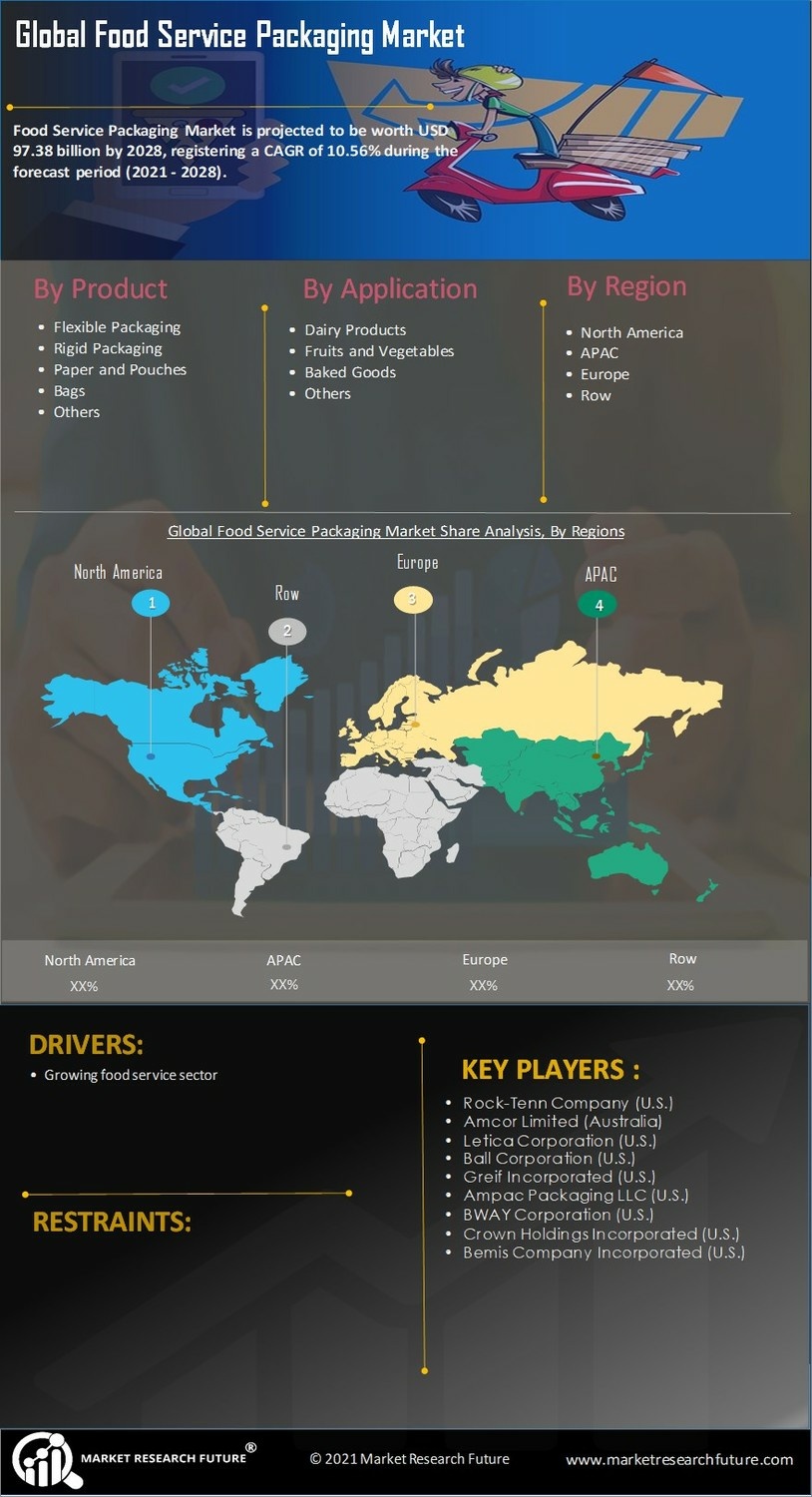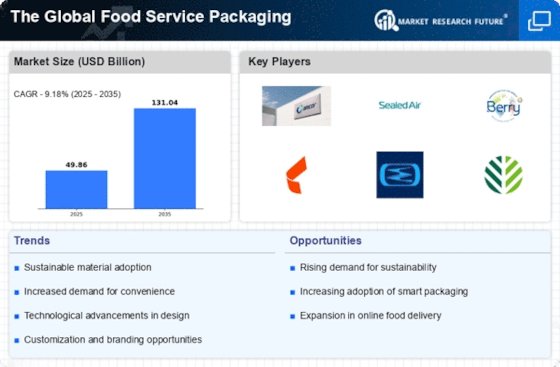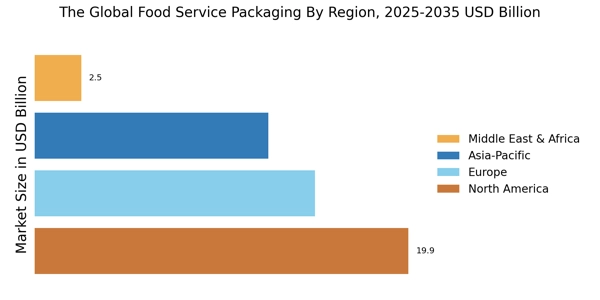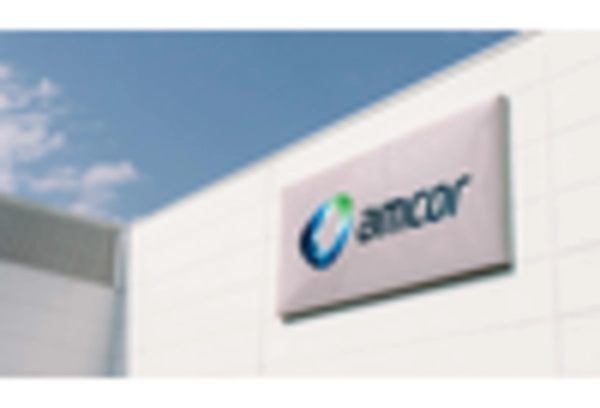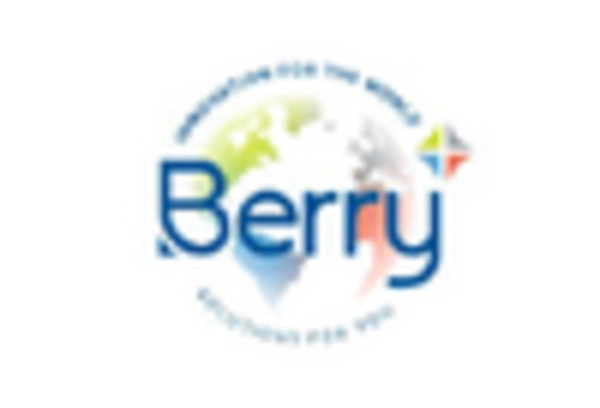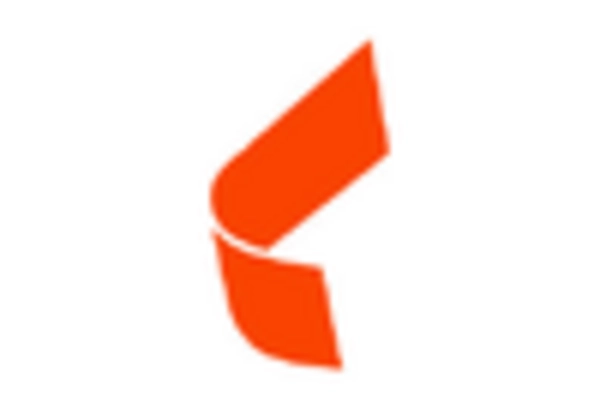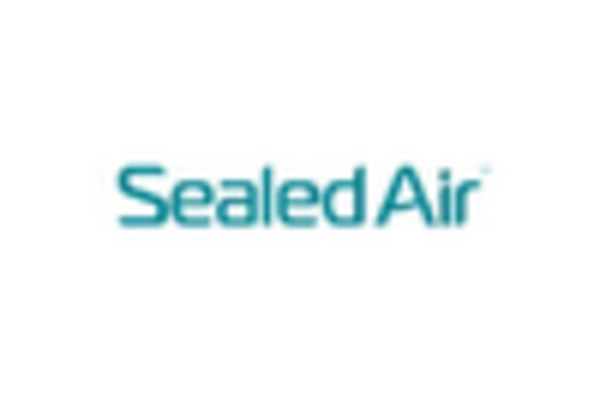Leading market players are investing heavily in research and development in order to expand their product lines, which will help the food service packaging market, grow even more. Market participants are also undertaking a variety of strategic activities to expand their footprint, with important market developments including new product launches, contractual agreements, mergers and acquisitions, higher investments, and collaboration with other organizations. To expand and survive in a more competitive and rising market climate, food service packaging industry must offer cost-effective items.
Manufacturing locally to minimize operational costs is one of the key business tactics used by manufacturers in the food service packaging industry to benefit clients and increase the market sector. In recent years, the food service packaging industry has offered some of the most significant advantages to market. Major players in the food service packaging market attempting to increase market demand by investing in research and development operations include Rock-Tenn Company (U.S.), Amcor Limited (Australia), Letica Corporation (U.S.), Ball Corporation (U.S.), Greif Incorporated (U.S.), Ampac Packaging LLC (U.S.), BWAY Corporation (U.S.), Crown Holdings Incorporated and Bemis Company Incorporated.
Amcor Plc is a company that offers packaging services. Pet bottles, plastic bottles and jars, capsules and closures, specialty folding cartons, free films, rigid containers, bags and pouches, wrappers, laminates and flow packs are just a few of its fiber, plastic, metal and glass packaging solutions. Products from the company are used in various technical applications as well as the beverage, food, personal care, pharmaceutical, medical device, homecare, and animal care industries. Additionally, it services the markets for healthcare, pharmaceuticals, personal care, and home goods.
In April AmFiberTM is, a new platform of paper-based packaging goods introduced by Amcor.
Amcor's consumer-centric and flexible approach to innovation is on display in the AmFiber platform, which strives to reinvent the capabilities of conventional paper packaging by offering a larger range of features and functional advantages to meet shifting customer needs.
Berry Includes Food-Grade Recycled Content in Flexible Plastic Packaging September 2023 - Berry has introduced food-grade LDPE films containing at least 30% post-consumer recycled plastic (PCR) into the market. Therefore, through this addition to its already robust film portfolio, Berry provides brands with a solution to their sustainability commitments to include PCR in food packaging.
Metal packaging services are offered by Ball Corp (Ball). It produces metal packaging items such as steel, aluminum, general, and aerosol containers for the beverage, automotive, food, paint, healthcare, personal care, and household products industries. The business creates, develops, and produces cutting-edge aerospace systems and related technologies for government and commercial clients, including instruments and sensors, antennas and microwave systems, electronic warfare, aerospace technology and components, spacecraft and space science, radio frequency systems and components, and data exploitation solutions.
